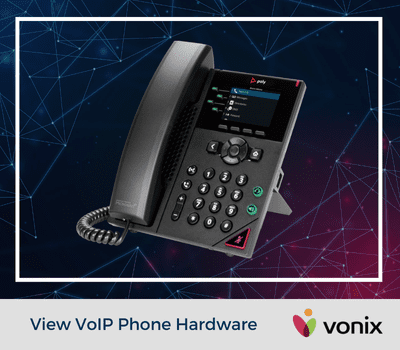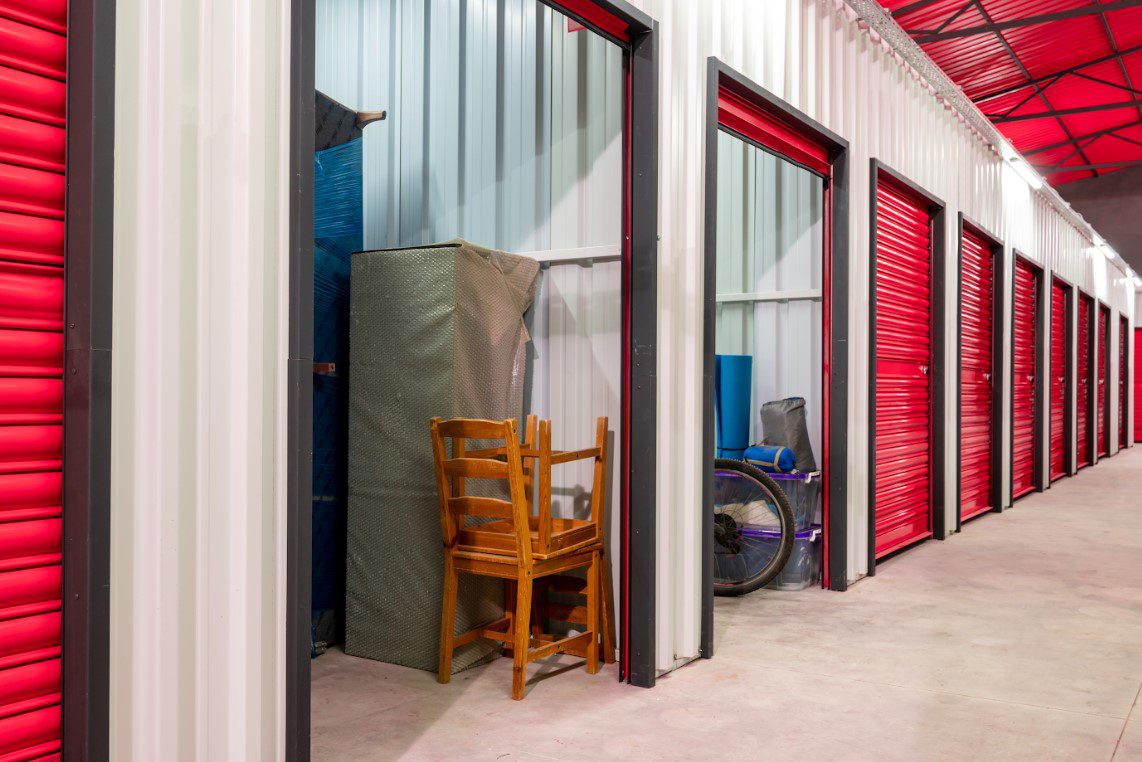Fixed VoIP Phone Number vs Non-Fixed Phone Number.
Thanks for visiting our site to find out what a fixed voip phone number is. VoIP phone services allow you to make phone calls using an internet connection instead of traditional landlines, offering flexibility and advanced features for modern businesses. Within VoIP technology, there are various solutions tailored to different needs. As you research business phone services, you may come across terms like fixed VoIP and non-fixed VoIP. Understanding the difference is essential for choosing the right option for your business.
In this guide, we’ll break down the key differences between a fixed VoIP phone number and non-fixed VoIP phone numbers and traditional phone lines. If you’re ready to jump straight to learning about fixed VoIP numbers and why we recommend them, keep reading:


Check Out the Vonix Cloud Phone System
VoIP vs. Traditional Phone Systems: Which Is Right for Your Business?
Traditional phone systems rely on physical landlines to transmit audio messages, while VoIP (Voice over Internet Protocol) systems use the internet to send “voice packets” to the receiver. Think of your cell phone: it operates similarly to VoIP, connecting over Wi-Fi or using 4G to send and receive voice calls.
Benefits of VoIP Systems
- Cost-Effective: VoIP equipment and upkeep are more affordable and straightforward. Your provider manages the lines, so there’s no need for onsite equipment or specialized maintenance.
- Easy Setup: Once installed, VoIP phones just need to be plugged in to start making calls.
- Enhanced Features: VoIP offers superior call quality, mobile integration, and the ability to operate phone lines through mobile devices, providing flexibility and reliability.
- Business Continuity: In case of an internet outage, VoIP systems allow you to switch to mobile networks, ensuring uninterrupted communication.
Why Some Businesses Still Prefer Traditional Phone Lines
- Familiarity: Many businesses stick with landlines to avoid change.
- Onsite Control: Some organizations prefer having a dedicated specialist managing their systems.
- Perceived Quality: Although some believe landlines provide better sound quality, modern VoIP systems deliver exceptional clarity, making any difference negligible.
As we’ve shared before, VoIP phone services let you phone calls through an internet connection instead of a landline. Within VoIP, there are a number of solutions for different kinds of businesses. One term you may see coming up when researching business phone services are fixed VoIP and non-fixed VoIP. Here, we’ll explain the difference between the two and why we recommend a fixed number.
To start, we’ll explain the differences between VoIP numbers and traditional phone line. If you want to skip ahead to learning about fixed numbers:
VoIP vs. Traditional Phone Systems
A traditional landline uses physical lines to send audio messages, while a VoIP line connects to the internet to send “voice packets” to the receiver. You can think of your cell phone as an example of VoIP calling – it likely connects over WiFi when you’re on a network but otherwise uses 4G to send and receive voice calls.
The benefits of VoIP are that the equipment and upkeep is much cheaper and simpler. Your VoIP provider manages the lines, and you don’t need any onsite equipment or specialists. Once installed, the phones simply need to be plugged in and you’ll be able to call.
Additionally, you’ll generally experience better call quality and have the option to operate your phone lines through a mobile device. That way, if you ever experience an internet outage, you’ll have a backup. It’s a lot quicker to get your phones up with VoIP than when a telephone pole gets knocked down.
So why do people still use traditional phone lines? Some just don’t like change and want to keep their systems the same. Others want to have a specialist on-site who controls their systems. And still more believe that the sound quality is better through landlines than over the internet. But, with modern VoIP systems, you shouldn’t notice a difference in call quality.
Types of VoIP Phone Lines
What is Fixed VoIP?
While both types of numbers connect your phones through the internet, a fixed phone number requires a physical address, much like a traditional phone line would. That means to have a local phone number, you need to have a location based in that same country. For most businesses, a fixed number is both preferred and offers a competitive benefit. It shows local customers that you’re an authentic company.
Perhaps most importantly, a fixed number can be tracked. For instance, if someone dials an emergency services number like 911, they will be able to tell where the call came from. Trackable numbers are harder to abandon and provide a sense of legitimacy.
While a fixed number is linked to an address, you can take the number with you should you ever need to move locations.
What Does Non-Fixed VoIP Mean?
A non-fixed phone number does not require a physical location. They are easier to obtain using an online calling service like Skype. Historically, non-fixed numbers went through fewer security protocols, which is why they were the top choice for fraud companies. If you’ve ever had your cell phone ring with a “scam likely” robocall, there’s a good chance it came from a non-fixed VoIP number.
With a virtual phone number, you can assign any area code to your phone number. If a company is based in New York City but does a lot of work with Chicago clients, they may want to have a line with a Chicago area code to give the impression of a local presence – even if they aren’t actually located there. This often triggers scam alerts as it is also a common tactic for fraud. Scammers will copy the first 6 digits of a number to something that will seem familiar on your caller ID so that you’re more likely to pick up.
Today, there are systems in place that make non-fixed number users a more secure choice than they used to be. Plus, when combined with an in-house PBX system, a non-fixed system may be a cheaper option for companies located in more than one country. But, non-fixed numbers are still relatively disposable and more likely to trigger spam filters.
Effect on Long Distance Calling
The biggest benefit of non-fixed number is the ability to use services like Google Voice and Skype for calling, cutting down long distance costs. International calling through VoIP (voice over internet protocol) can cost more than domestic calls because of the associated regulation fees. However, these long distance calls will still be cheaper than if they were made through landline connections.
Non-fixed calling is still more common for personal use, as you only need an email address to sign up. However, business VoIP providers that use fixed numbers will offer more features that companies need when calling internationally.
Which is Better for a VoIP User?
We set up all of our customers’ VoIP systems using a fixed number. You will get the best security from malicious attacks. With the right features, your fixed number will give you all the features you need that a non-fixed number may be tempting you with. Remote access, IVR, auto attendant, and mobile forwarding are just a few ways to empower your company.
Employees will be able to work from anywhere in the world with an internet connection while taking calls to your home country’s number. Your customers will enjoy better call quality from a reputable source. It’s a win-win.
Two Types of VoIP Phone Lines: Fixed and Non-Fixed
What is a Fixed VoIP Phone Number?
A fixed VoIP phone number is a virtual phone number linked to a physical address, offering enhanced reliability and credibility compared to non-fixed VoIP numbers. These numbers are associated with an internet-based phone system but are tied to a specific geographic location, making them ideal for businesses that require a professional image and need to establish trust with customers.
Fixed VoIP numbers are often preferred for businesses because they meet regulatory compliance standards and are less likely to be flagged as spam or fraudulent. They also provide advanced features like call forwarding, voicemail, and scalability, while maintaining the familiarity of a traditional phone number format.

Whether you’re running a small business or a large enterprise, fixed VoIP numbers deliver a seamless communication experience while offering the flexibility and cost-effectiveness of VoIP technology.
What Does Non-Fixed VoIP Mean?
A non-fixed VoIP phone number is a virtual number that doesn’t require a physical address to operate. These numbers are often obtained through online services like Skype or Google Voice and are highly flexible.
Key Features of Non-Fixed VoIP Numbers:
- No Physical Location Required: Unlike fixed VoIP numbers, non-fixed numbers don’t need to be tied to a specific address.
- Customizable Area Codes: Businesses can assign area codes to match their client base, such as using a Chicago area code while operating from New York City, to establish a local presence.
- Cost-Effective for Global Operations: Non-fixed numbers are often more affordable for companies with international operations, especially when paired with an in-house PBX system.

Security Concerns and Misuse:
Historically, non-fixed VoIP numbers were favored by scammers due to their easy acquisition and fewer security checks. Fraudsters often mimic familiar phone numbers, increasing the likelihood of their calls being answered. For example, “scam likely” calls often originate from non-fixed numbers that replicate the first six digits of your number to appear trustworthy.
Modern Improvements:
Today’s non-fixed VoIP providers implement stricter security measures, making them safer than in the past. However, they remain more disposable than fixed VoIP numbers and are more likely to trigger spam filters, which can affect their credibility.
While non-fixed VoIP numbers offer flexibility and affordability, they may not be the best choice for businesses prioritizing trust and long-term communication strategies.

Which is Better for a Business VoIP User: Fixed or Non-Fixed Numbers?
For most VoIP users, a fixed VoIP number is the superior choice. At Vonix, we set up all customer systems with fixed numbers to ensure top-tier security and reliability.

Effect on Long Distance Calling
When it comes to long-distance and international calls, non-fixed VoIP numbers offer a significant cost advantage. Services like Google Voice and Skype make it easy to reduce expenses for international calls by leveraging internet-based calling instead of traditional landlines.
Benefits of Non-Fixed VoIP for Long Distance
- Lower Costs: Long-distance VoIP calls are generally cheaper than landline connections, even when factoring in regulatory fees for international calls.
- Ease of Access: Non-fixed numbers require only an email address to set up, making them ideal for personal use and quick, low-cost international communication.
Advantages of Fixed VoIP for Business Calling:
For businesses, fixed VoIP numbers provide additional functionality and reliability for international communications:
- Advanced Features: Fixed VoIP systems include tools like call routing, IVR, and secure remote access, which are essential for global business operations.
- Credibility: Fixed numbers tied to a physical address help establish trust with international clients and reduce the risk of being flagged as spam.
- Cost-Effective for Enterprises: While still affordable, fixed VoIP solutions are designed to meet the needs of businesses calling internationally without sacrificing quality or reliability.
Why Choose a Fixed VoIP Number?
- Enhanced Security: Fixed numbers provide better protection against malicious attacks and fraud.
- Comprehensive Features: Enjoy advanced functionalities like remote access, IVR (Interactive Voice Response), auto attendants, and mobile forwarding, all without sacrificing credibility.
- Global Flexibility: Employees can work from anywhere with an internet connection while maintaining seamless communication through your primary business number.
- Professional Reputation: Fixed numbers are tied to a physical location, making your business appear more trustworthy and credible to customers.
The Customer Advantage
With a fixed VoIP number, your customers benefit from higher call quality and the assurance that their calls come from a reputable source. It’s the perfect solution for businesses looking to combine security, flexibility, and professionalism into one streamlined communication system.
Switch to a fixed VoIP system today and empower your business to thrive in a connected world!
For personal use and occasional international calls, non-fixed VoIP numbers are a practical, low-cost option. However, businesses benefit more from the added features, security, and professionalism that fixed VoIP systems deliver.










